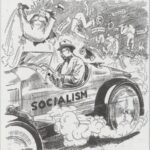Born in Austria-Hungary in 1860, Victor Berger emigrated to the United States in 1878 and settled in Milwaukee three years later. His frustration with the social conditions of the day led him to adopt socialism in 1892, and he soon set himself the task of developing it into an organized and effective political movement in the United States. Berger’s approach was pragmatic and local, less concerned with splitting ideological hairs than with providing quality government services like parks and sanitation to working people. This approach earned Berger and his colleagues the nickname “Sewer Socialists,” a label they adopted with pride.
One of the keys to the Sewer Socialists’ success was their ability to enlist the vigorous support of Milwaukee’s substantial trade union movement. This support was on display during Berger’s 1918 campaign for U.S. Senate. An inscription along the bottom edge of one of his campaign posters, “Authorized and Published by Frank J. Weber,” verifies that collaboration. Weber was one of Wisconsin’s most influential and effective labor leaders. This inscription suggests that the Federated Trades Council of Milwaukee, of which Weber was the secretary, backed Berger’s campaign.
Berger became the first Socialist to serve in the United States House of Representatives, winning the election in Wisconsin’s 5th congressional district in 1910. Although his first stint in Congress only lasted one term, and he did not win his 1918 bid for Senate, he won reelection to the House in 1922 and served from 1923 until 1929. While World War I and its aftermath effectively destroyed the Socialist Party’s influence on the state and national levels, Milwaukee voters continued to elect Socialist mayors, a trend that began in 1910 with the election of Emil Seidel, until 1960.
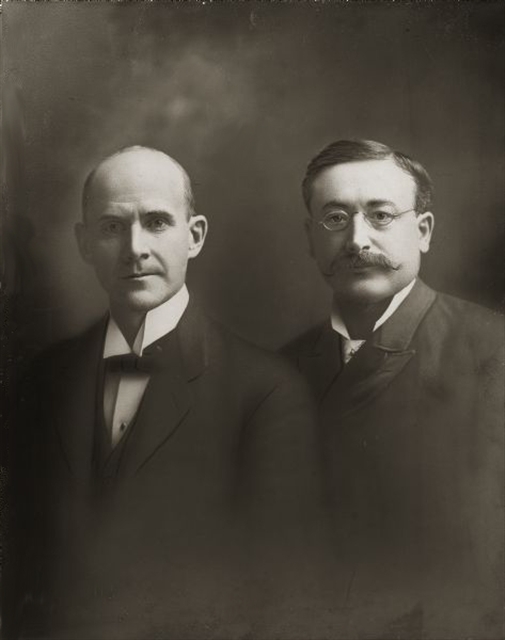
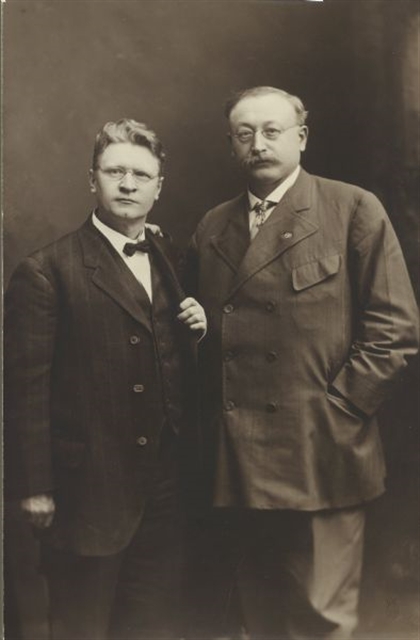
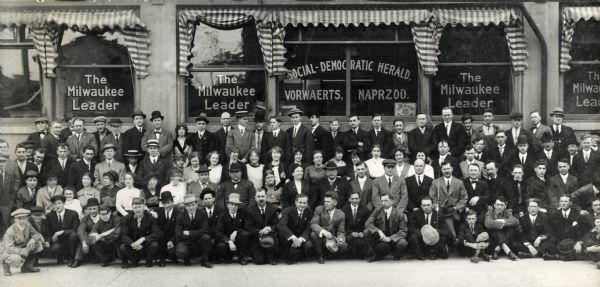
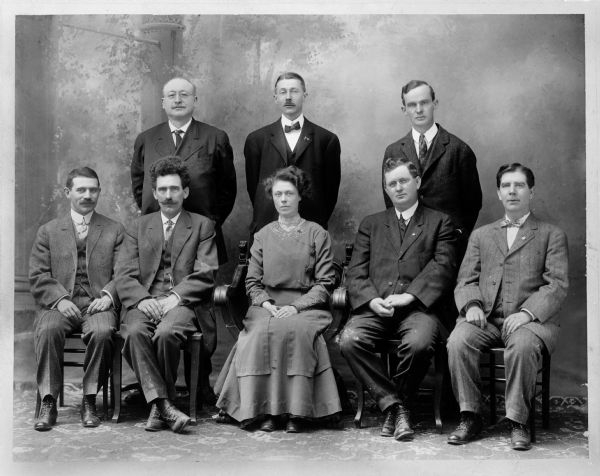
Yet Victor Berger’s influence extended well beyond his party’s electoral successes. Many of the causes Berger and his Socialist compatriots advocated — votes for women, old age pensions and workers’ compensation, reforestation, the eight hour day, limits on child labor – nourished Wisconsin’s famed Progressive tradition. Ultimately, they have become part of our baseline expectations of what a responsible government provides for its citizens.
This story was edited and adapted from Dave Driscoll’s original Curators’ Favorites article.
SOURCES
Meta Schlichting Berger, A Milwaukee Woman’s Life on the Left: The Autobiography of Meta Berger. Madison: State Historical Society of Wisconsin, 2001.
Victor Berger Papers, Wisconsin Historical Society Archives.
John Gurda, The Making of Milwaukee. Milwaukee: Milwaukee County Historical Society, 1999.
Michael E. Stevens, ed. The Family Letters of Victor and Meta Berger, 1894-1929. Madison: State Historical Society of Wisconsin, 1995.
